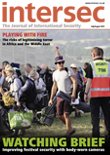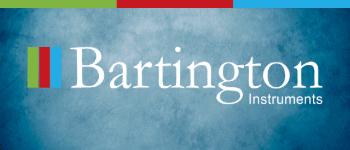Who watches the watchers?
Loch K Johnson examines the importance of safeguarding democracy against the dark side of Government
An experiment in the United States designed to introduce accountability (“oversight,” in the political science term) into the hidden domain of intelligence agencies is now in its 43rd year, having been initiated in 1975. All democracies have had to wrestle with the challenge of tolerating secret services within otherwise relatively transparent governments, because these espionage agencies are necessary for the gathering of information about potential threats to a nation. Yet democracies pride themselves on privacy and liberty, while spies operate in darkness with heavily veiled budgets and an engagement in operations that can be controversial – overthrowing foreign regimes, for instance, even democratically elected ones, as was the case when President Richard Nixon directed the Central Intelligence Agency (CIA) to topple the Chilean government led by a freely elected President, Salvador Allende, in the seventies. Sometimes these operations can raise deeply troubling moral issues, such as the CIA resorting to the use of torture and rendition against suspected terrorists in the aftermath of 9/11, with little effect other than to stain the reputation of the US around the world.
Spy agencies have even turned their dark arts against the very people they were created to protect, as occurred in the United States with the so-called COINTELPRO operations carried out by the Federal Bureau of Investigation (FBI) against civil rights and antiwar activists during the sixties and Operation CHAOS when the CIA also spied against antiwar activists during this same period. The Church Committee, led by Senator Frank Church, for whom I served as an aide, investigated these shocking violations in 1975 and began the experiment in drawing the reins tighter on intelligence activities. Its reports revealed widespread abuse of power by America’s intelligence agencies, not only COINTELPRO AND CHAOS, but widespread spying against citizens by the National Security Agency (NSA), which engaged in reading the international telegrams of American citizens and wiretapping their telephones without a warrant. Added to this list of discoveries was the further stunning discovery that the CIA had planned assassination plots against foreign leaders in the developing world – Fidel Castro, for one.
More recently in the United States, unauthorised leads from an NSA outside contractor in 2013 (Edward Snowden) revealed that this sprawling agency was again using wiretap surveillance without proper warrants, as well as collecting massive amounts of ‘metadata’ on American citizens, including their telephone and social media contact points – regardless of whether they were suspected of terrorism or other criminal acts.
Democracy and intelligence are a poor match. Yet, we live in an uncertain and dangerous world with a plethora of nuclear warheads, long-range missiles, chemical and biological weapons, hostile foreign leaders (some of whom are thugs and dictators), failing states and brutal terrorists. Without an intelligence capability that can scan the globe to warn about these global perils, as well as possible pandemics and environmental catastrophes, this planet would be an even more dangerous place. Thus it is incumbent upon democracies to maintain strong, effective espionage capabilities; at the same time, though, to prevent the misuse of secret power, open societies have had to ensure that their intelligence services are closely watched by overseers. No more COINTELPROs or CHAOS.
Mr. Snowden’s disclosures heightened interest in the question of intelligence accountability and spurred calls for a fresh examination of an age-old question: Who, if anyone, within a democratic society is able to protect citizens against the improper use of the dark powers that are concealed within the corridors of the government’s spy agencies? Who will watch the spies?
The Church Committee produced a sea change in perspectives within the United States about the matter of intelligence oversight. Before, accountability had been thin; members of Congress were content during the Cold War to let the secret side of Government go its own way for the most part, guided by broad directives from the White House with only occasional spurts of interest by Congress. Spy activities would be an exception to the normal canons of Government accountability; these operations were simply too delicate and dependent on secrecy for normal procedures.
Further, lawmakers were too busy with other endeavours – not least, fund raising for their next election campaign – to worry much about covert actions and other stealthy activities aimed at the enemies of democracy abroad. Besides, the less members of Congress knew about spy operations, the easier it would be for them to dodge culpability if things went wrong, as with the Bay of Pigs invasion in 1961. Congressional “plausible deniability” – claiming ignorance of a covert ploy gone awry – could be a handy thing.
Operations COINTELPRO and CHAOS, however, brought an end to this philosophy of blind trust. Now the American public and their representatives began to understand that constitutional protections were required even within – perhaps especially within – the rabbit hole of the secret agencies. Yet a change in attitudes among lawmakers about intelligence exceptionalism, though important, was not enough. Genuine accountability required new guidelines to serve as buoys for the secret services, marking more clearly the precise boundaries of probity. These new rules had begun to take shape with passage of the Hughes-Ryan Act, which took effect in 1975, to require reporting to lawmakers on all significant covert actions (the CIA’s use of secret propaganda, political, economic and paramilitary operations against other nations). Such statutory safeguards would continue to expand over the next 40 years, with debate on their merits still a lively topic today – thanks to the controversy generated by the metadata controversy, along with the notoriety of the CIA’s “enhanced interrogation” (torture) practices, its use of extraordinary renditions, and other controversial spy practices.
How well the new oversight laws have been enforced by members of Congress since 1975 provides an index of the commitment on Capitol Hill to intelligence accountability. The results have been mixed, stretching from a persistent passivity among many lawmakers that harks back to the days of neglect before the Church Committee, to bursts of formal oversight investigations rarely seen in the days preceding the investigations of 1975. Among the most prominent of the oversight eruptions in the United States came about as a result of the Iran-contra scandal during the Reagan Administration, which led to a major inquiry into the CIA’s efforts to overthrow the Sandinista regime in Nicaragua.
Throughout this experiment in accountability, America’s lawmakers have continued to feel the pressures of campaign fund raising, and they continue to worry that the next Bay of Pigs could ruin their careers if they were shown to have had prior knowledge of the planning. These pressures shift their attention away from monitoring the spy agencies. Yet what if there are future intelligence failures that lead to even more devastating attacks against the democracies than the events of 9/11 or other terrorist tragedies that have visited the United Kingdom, Continental Europe and elsewhere? What if lawmakers in the United States and Parliamentarians in the other democracies could have prevented these failures by way of a more thorough review of intelligence preparedness? What member of Congress or Parliament will want to explain to constituents why he or she was too busy raising campaign funds to ensure – through hearings, budget analyses, and steady program reviews – the readiness of intelligence agencies to protect the democracies?
Yet, in the years since 1975, some lawmakers have continued to act like ostriches, with a head-in-the-ground posture that allows the secret agencies to carry on as they see fit – just like the good old days. Or members of Congress may act as cheerleaders, displaying an open eyed but nonetheless unquestioning support for the intelligence agencies. A few have been lemon suckers, with a distinctly sour view of even allowing the existence of secret agencies in an open society (the late Senator Daniel Patrick Moynihan of New York, for example, who called for the abolition of the CIA in the nineties). The ideal posture for a lawmaker is the role of guardian, someone who balances support for the spy services when warranted along with strong criticism when the secret agencies engage in dubious activities. Unfortunately, these first two roles – the ostrich and the cheerleader – have proven to be most predominant in the US Congress.
Regardless of all the good reasons for being a dedicated spy overseer, most observers agree that members of Congress and their counterparts in other democracies are performing far below their potential when it comes to supervising the spy agencies. Intelligence oversight remains a neglected stepchild in democratic societies. Correcting this condition is a worthy challenge for educators, journalists, civic groups and indeed all public-minded citizens.
My recently published book on intelligence accountability, Spy Watching: Intelligence Accountability in the United States (Oxford University Press, 2018), advocates the establishment of a Citizens Intelligence Advisory Board in the United States. The duty of this Board, comprised chiefly of outside citizens with national security expertise, would be to assist the congressional intelligence committee with their accountability tasks, which are presently too overwhelming for lawmakers alone to address.
The purpose of the CIAB would be to supplement the work of the two existing intelligence oversight committees in Congress, especially providing assistance in the conduct of major investigations into alleged intelligence improprieties. Moreover, when the congressional committees are, at certain times, captured by ostriches and cheerleaders, the less political and more independent members of the CIAB could take up the slack.
In the pursuit of better intelligence guardianship,
the Congress needs some help. The memories of COINTELPRO, CHAOS and other unsettling infringements against freedom by the spy agencies demand a more serious approach to accountability within the dark side of the polity.
Loch K Johnson is Regents Professor of International Affairs in the School of Public and International Affairs at the University of Georgia in the United States. He is the author most recently of Spy Watching: Intelligence Accountability in the United States (Oxford, 2018).









